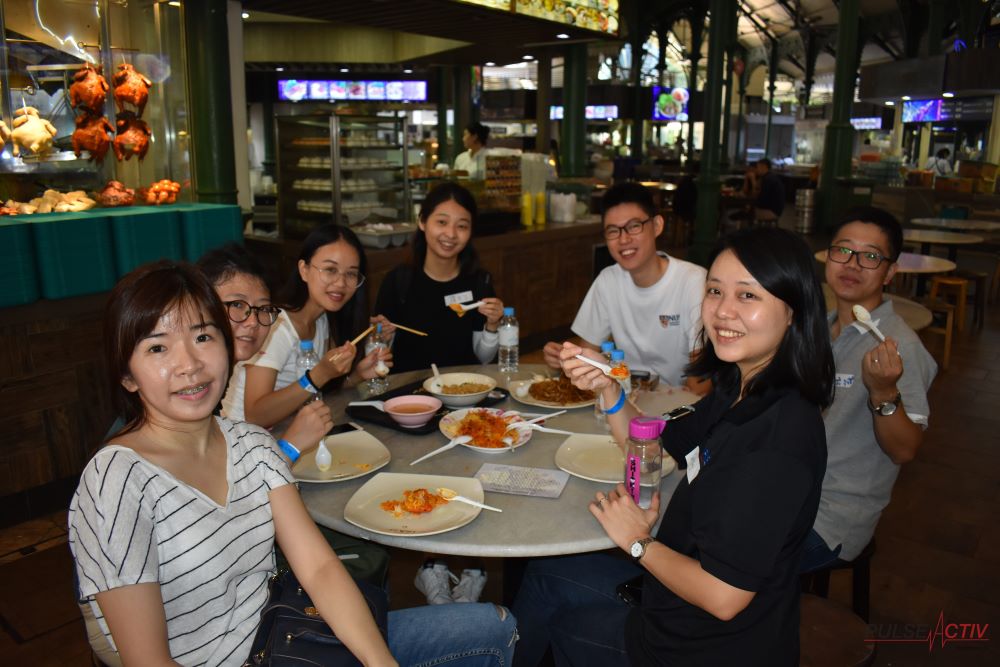Savoring Success: Eating Challenges as a Team Building Activity
In the realm of team building activities, eating challenges might not be the first to come to mind. However, these culinary contests can be an exciting, engaging, and delicious way to bring team members together. By combining elements of fun, competition, and collaboration, eating challenges can help break down barriers, foster camaraderie, and enhance team spirit. Here’s how incorporating eating challenges into your team building strategy can benefit your workplace.
1. Breaking the Ice
Creating a Relaxed Atmosphere
Eating challenges provide a fun and informal setting for team members to interact. Whether it’s a spicy food challenge, a pie-eating contest, or a blindfolded taste test, these activities create a relaxed atmosphere where employees can let their guard down and enjoy themselves. This can be particularly beneficial for new team members or those who might be shy, helping them feel more comfortable and integrated into the group.
2. Encouraging Teamwork
Collaborative Culinary Contests
Many eating challenges can be designed to require teamwork and collaboration. For example, a relay-style eating challenge where team members take turns eating different items can encourage communication and strategy. Teams must work together to decide the order of participants, taking into account each person’s strengths and preferences. This fosters a sense of unity and cooperation, reinforcing the importance of working together to achieve a common goal.
3. Celebrating Diversity
Exploring Culinary Cultures
Food is a wonderful way to celebrate diversity and learn about different cultures. Organize eating challenges that involve dishes from various cuisines, allowing team members to share and experience each other’s culinary heritage. This not only broadens everyone’s gastronomic horizons but also promotes cultural understanding and appreciation. It’s an opportunity for employees to bond over shared experiences and discover commonalities despite their differences.
4. Boosting Morale
Fun and Laughter in the Workplace
There’s something inherently joyful about food, and eating challenges can inject a sense of fun and excitement into the workplace. The playful competition and humorous moments that arise during these activities can boost morale and create lasting memories. Laughter is a powerful tool for reducing stress and building positive relationships, making the workplace a happier and more enjoyable environment.
5. Enhancing Communication
Fostering Open Dialogue
Eating challenges often require participants to communicate and coordinate effectively. Whether it’s discussing strategies for a team-based eating contest or simply sharing thoughts on the flavors and textures of different foods, these activities can enhance communication skills. Team members learn to listen to each other, articulate their ideas, and provide constructive feedback, all of which are essential skills for a cohesive and productive team.
6. Building Resilience
Overcoming Challenges Together
Participating in eating challenges can also teach valuable lessons in resilience and perseverance. Whether it’s pushing through the heat of a spicy food challenge or completing a marathon eating contest, these activities require determination and mental fortitude. Overcoming these challenges together can strengthen the team’s resolve and foster a collective sense of achievement, reinforcing the idea that they can tackle difficult tasks as a united front.
7. Promoting Creativity
Inventive and Unique Challenges
Designing and participating in eating challenges can stimulate creativity and innovation. Encourage team members to come up with unique challenge ideas, such as creating the most inventive sandwich or decorating a cupcake in the most creative way. This not only makes the activities more engaging but also encourages out-of-the-box thinking and problem-solving skills, which can be beneficial in the workplace.
Implementing Eating Challenges in Your Team Building Strategy
To effectively incorporate eating challenges into your team building strategy, consider the following tips:
- Know Your Team: Be mindful of dietary restrictions, allergies, and personal preferences to ensure everyone can participate comfortably.
- Mix It Up: Vary the types of challenges to keep things interesting and cater to different tastes and interests.
- Create a Safe Environment: Ensure that all activities are safe and non-threatening. Avoid excessively spicy or large quantities of food that could cause discomfort or harm.
- Encourage Participation: Make participation voluntary and encourage everyone to join in, but don’t force anyone who feels uncomfortable.
- Celebrate Achievements: Recognize and celebrate the efforts and achievements of all participants, whether they win or lose.
Conclusion
Eating challenges are a unique and enjoyable way to enhance team building. They break down barriers, foster teamwork, celebrate diversity, boost morale, enhance communication, build resilience, and promote creativity. By incorporating these activities into your team building strategy, you can create a more cohesive, engaged, and motivated team, ready to tackle any challenge that comes their way. So, why not spice up your next team building event with a delicious dose of culinary competition?
To head back to read another article in our blog, click here.

